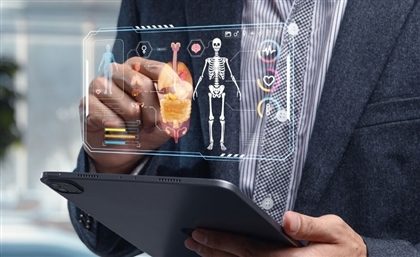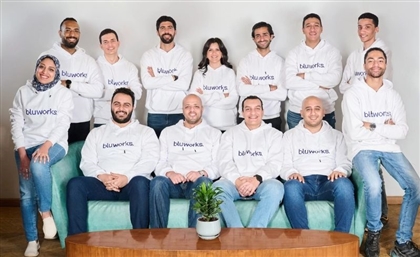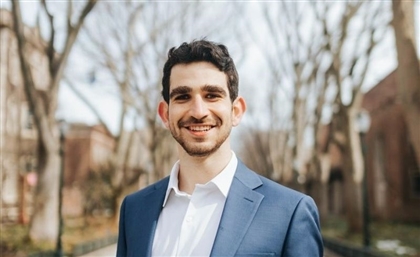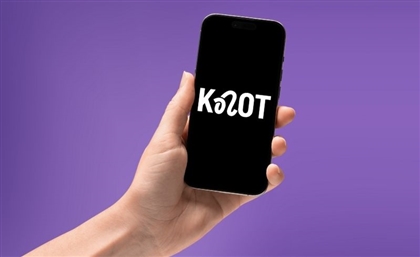An Outsider’s Look at Startups in Egypt’s Capital
As he touched down in Egypt to speak at the Vested Summit, American author and entrepreneur Andrew Rowan takes a tour around Cairo's startup ecosystem. Here's what he found.
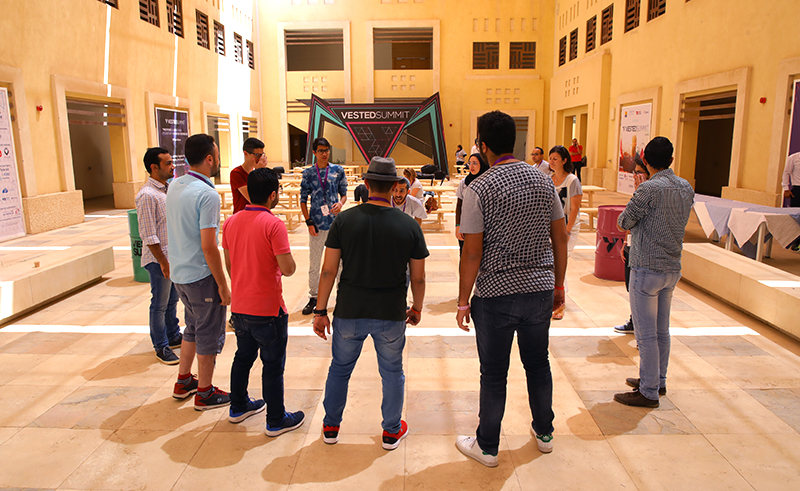
Last month, I joined the Vested Summit in El Gouna, Egypt. Afterward, I headed to Cairo where I spent a week learning more about what was going on in Greater Cairo - a metropolitan area that more than 23 million people call home. Unfortunately, I had just missed the second annual Orange Startup Cup and an Extreme Build-A-Business Workshop (EBABW), which had concluded the week and day before respectively. However, I was familiar with variations of each event because we also have them in Vietnam.
Both initiatives sought to foster the creation of new businesses by supporting young and would-be entrepreneurs. Specifically, the Orange StartUp Cup targets areas such as mobile agriculture, virtual reality, urban development, gaming, application development, financial technology, and digital education. Although 178 teams applied, only 25 were selected for the six month acceleration program with five finalists determined by a jury panel. Orange, the telecommunications services provider, gives support and 300,000 EGP (~$17,000) to the winning teams.
Dalia Al Said, Executive Vice President at GriffinWorx, shared her take on what the startup scene in Egypt has been like over the past five years that she’s been with the firm: “Startup Cup first came to Egypt in 2012; since then we have been supporting the Egyptian ecosystem through different GriffinWorx programmes. Egyptian entrepreneurs proved to be resilient and were able to stand the test of time and economical challenges, thriving everywhere around the world. When we started working in Egypt, entrepreneurship, with its modern definition, was new to Egyptians - every year we witnessed an increase in the quality and quantity of entrepreneurs and what surprised us the most was the growing numbers of women founders and co-founders.

Egyptian entrepreneurs participated in the hackathon at the Vested Summit last May in TU Berlin, located in the coastal town of el Gouna.
"The growing number of incubators and accelerators popping up everyday around Cairo, in addition to the vast variety of startups that support programming, is changing the lives of entrepreneurs. The number of failures we’ve witnessed in the Egyptian market in the past 5-6 years was a true learning opportunity for those who are making it happen in all the different sectors, starting with renewable energy to FinTech, to fashion and jewelry designers, not to mention the increasing quality of mentors in a buzzing ecosystem where 50% of population are youth, so you can only imagine the opportunities,” she adds.
The day after I arrived in Cairo, Flat6Labs Cairo held its Spring 2018 Demo Day at the Intercontinental Semiramis Cairo. I joined the event to take a look at some up-and-coming Egyptian startups pitching products/services in Consumer e-commerce, FinTech, Health and Safety, Education, and Design and Media.
Before the start of the pitches, I had a chance to meet with some of the founders to have a firsthand look at their products and services. Overall, seven out of the 10 pitches were in English and the remaining pitch decks were in English, despite the pitches themselves being in Arabic. This was in contrast to my experience in Vietnam and Mexico, where the pitches were usually or exclusively in local languages (Vietnamese and Spanish, respectively). Surprisingly, the Cairo Demo Day pitches were even more impressive -in terms of clarity, presentation, and stage presence - than some of those I had seen delivered by East Asian founders as part of a delegation to New York City.

Flat6Labs Cairo held its Demo Day last may, where 10 startups graduated marking its 10th cycle.
The Spring 2018 cohort, representing startups across Egypt and the Middle East, marked the 10th cycle since Flat6Labs’ launch in 2011. Over the course of four months, the teams underwent over 60 hours of coaching and training sessions on topics such as financial modelling and growth hacking. Of note, were 7aweshly (pronounced “haweshly”), a micro savings app to encourage consistent savings from recurring income; MedMisr (Misr is the name of Egypt in Arabic), which digitises much of the medical insurance footprint with a focus on fraud prevention; and Weelo, a supermarket delivery app to have your groceries arrive in under 45 minutes.
Co-founder and COO of weelo, Sophia Korayim, shared: “One of our most recent accomplishments was that Weelo was featured in the App Store under ‘New Apps We Love’. We were honored and extremely proud that our app was selected by Apple. Each week, the local app store editors determine the best–and most relevant–apps for their specific users. By having humans choose the apps, Apple ensures that the featured apps will be the ones most likely to appeal to local users. This accomplishment validates our technology as well as and recognizes that our app has an excellent user experience for our customers.”
What struck me the most as the presentations unfolded is that none of the solutions were for uniquely Egyptian problems. Why did I think this? At the Vested Summit, the panel moderator had asked me to provide an example of a Vietnamese startup creating a solution for a “Vietnamese problem” during our briefing. I was slightly puzzled because many of the challenges that Vietnamese innovators and entrepreneurs are tackling are challenges faced by people in countries all around the world, such as access to market, access to finance, and banking the un(der)banked, etc. So, in the Cleopatra Ballroom, I could see any of the the Egyptian products and services from the Demo Day deployed in Mexico, Vietnam, or even the United States today. (Obviously, if regulatory compliance were not an immediate hindrance.)

The Greek Campus, one of the most famous mixed-used spaces in the heart of Cairo.
The next day I headed to the GrEEK Campus to see for myself one of the most famous mixed-use spaces in Cairo. After a little trouble finding the main entrance, I registered as a guest and proceeded to walk around the venue, which is home to Falak Startups (formerly known as Sherketak), an acceleration program, and Egypt Ventures, founded in 2017 with strong ties to Egypt’s Ministry of Investment and International Cooperation. Simply, it was like an oasis in Cairo: quiet and green, with vast communal spaces. The atmosphere was wonderful inside the complex, which houses a co-working space, office space, a cafe, a deli, and a library. I could see myself visiting the space quite often if I lived in Cairo.
Earlier in the month, another innovative space had been set up: Seedspace Cairo. Seedspace Cairo is the first space set up in Middle East/North Africa (MENA) by Seedstars, the Switzerland-based emerging markets platform that is active in over 80 countries. On May 4, Seedspace Cairo’s doors were opened to the public, about 11 kilometers south of the famous Tahrir Square. Building on the co-working vertical, Seedspace also offers a co-living option, thereby deepening community ties among its members. Looking ahead, Seedstars aims to have 15 such hubs worldwide by the end of 2018.
During my stay in Egypt, it was not uncommon to hear, “that sounds just like Egypt” or some variation thereof when I gave a brief overview of the Vietnamese economy to Egyptians: 96 million people, an urbanisation rate of less than 50 percent, having two clear top cities with different strengths, brain drain and gender inequality issues, and a young median age. As in Vietnam, there were some surprising developments in technology and innovation in Egypt - at least to a visitor.

The Opening of Seedspace, last May in Cairo, was also the occasion for the finals of the global Seedstars World competition.
While visiting, I had a chance to try out Affectiva’s “emotion recognition technology”, which was the first time I had AI and algorithms applied to my facial gestures to assess my mood and emotional state. Co-founded by Egyptian Rana el Kaliouby, who took over as CEO in 2016, Affectiva, was spun out of the MIT Media Lab and has an engineering team in New Cairo. While receiving a demo from a Software Developer and a Data Processing Engineer, I noticed that the response time of the technology was great and the corresponding emotional descriptor seemed to accurately portray the emotion that I tried to convey.
Unfortunately, I was not able to use Careem, a regional alternative to Uber, to get around because “the reason behind the blocking is that the (account claimed country mismatched with signup [IP] address or used [virtual private network])”, according to Hossam Sobhy, a Careem employee. I was hoping to see the difference in user experience as compared to Grab, Southeast Asia’s homegrown alternative to Uber. Turning to public transportation, I was not able to use Google Maps to accurately plan a trip because there are no available real-time transit updates.
One organization, Transport for Cairo (TfC), is aiming to change that by aggregating and mapping public transportation data. According to their blog: “Transport for Cairo (TfC) is a group initiative of young professionals that aims to gather and share information about public transportation to everyone in the most convenient and practical ways: for example printed maps and digital feeds. This project is fundamentally about open data since this data belongs to every citizen.”
Mohamed Hegazy, Director of TfC, explained the progress the group has made since its inception in 2015:“The TfC urban mobility lab has been researching how Cairo moves since 2015, developing novel methodologies and technology to model its transit networks, even the informal microbuses. Support from Expo Live, an innovation and partnership programme launched by Expo 2020 Dubai, allowed us to map the full transit network of Cairo’s suburban new desert communities to date. With our partners Digital Matatus and Takween, we aim to enable trip-planning on existing applications (i.e. Google Maps and others) for the full metropolis by 2019.”
Taxis it was for me then. Hopefully, I’ll be able to use TfC - or the output of the team’s efforts - during my next visit to Cairo. As for when that might be, I’m not sure but I’d love to come back to the region, hopefully soon!
Photography by @MO4Network's #MO4Productions.
Trending This Month
-
Jan 19, 2026



